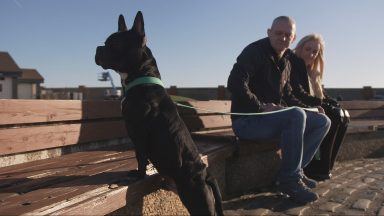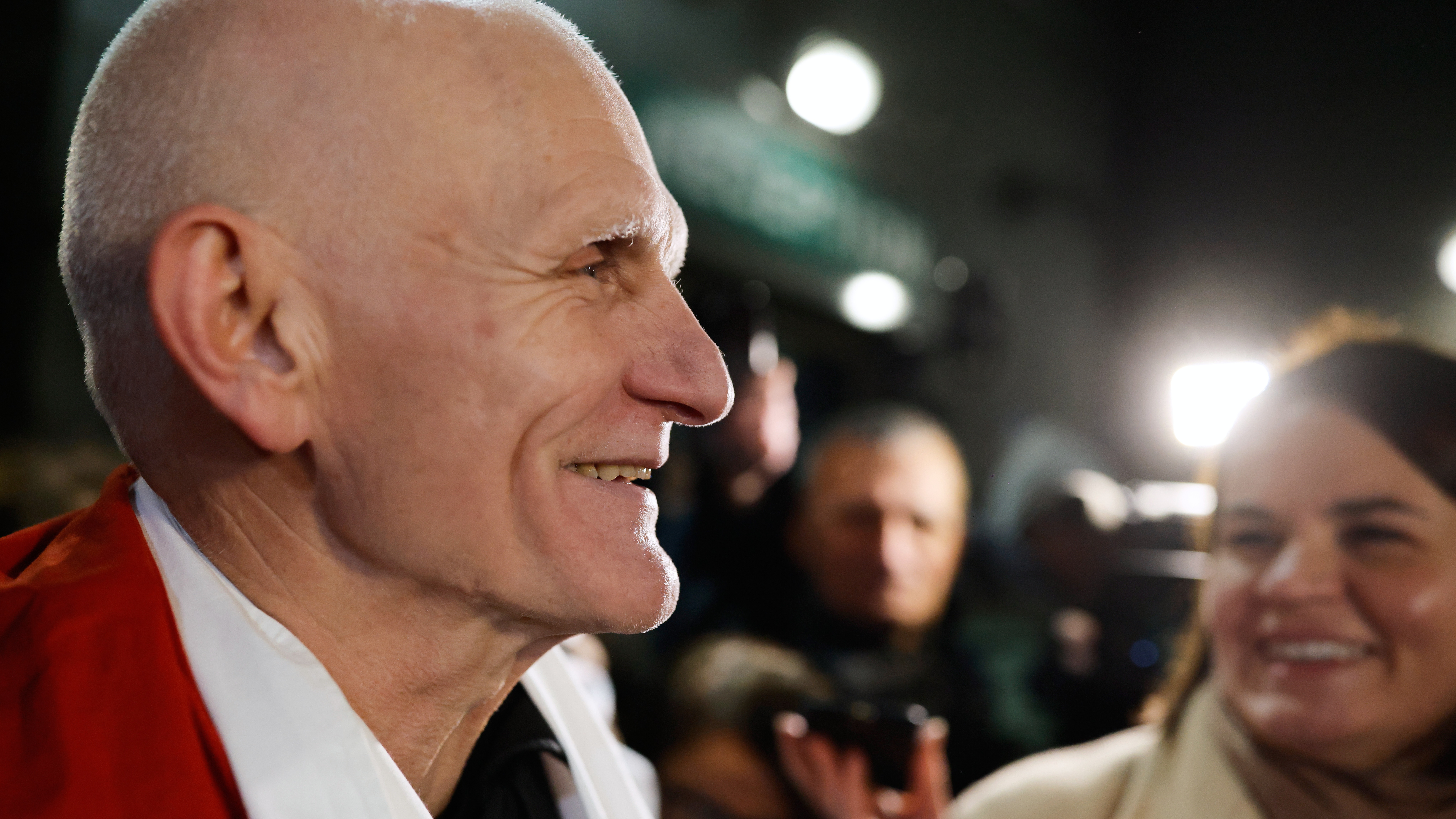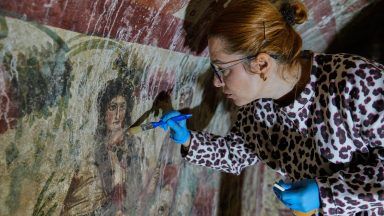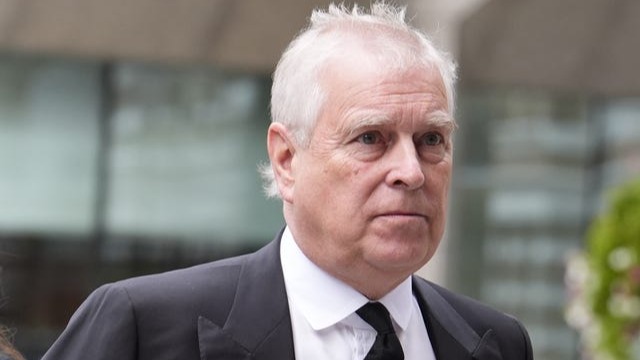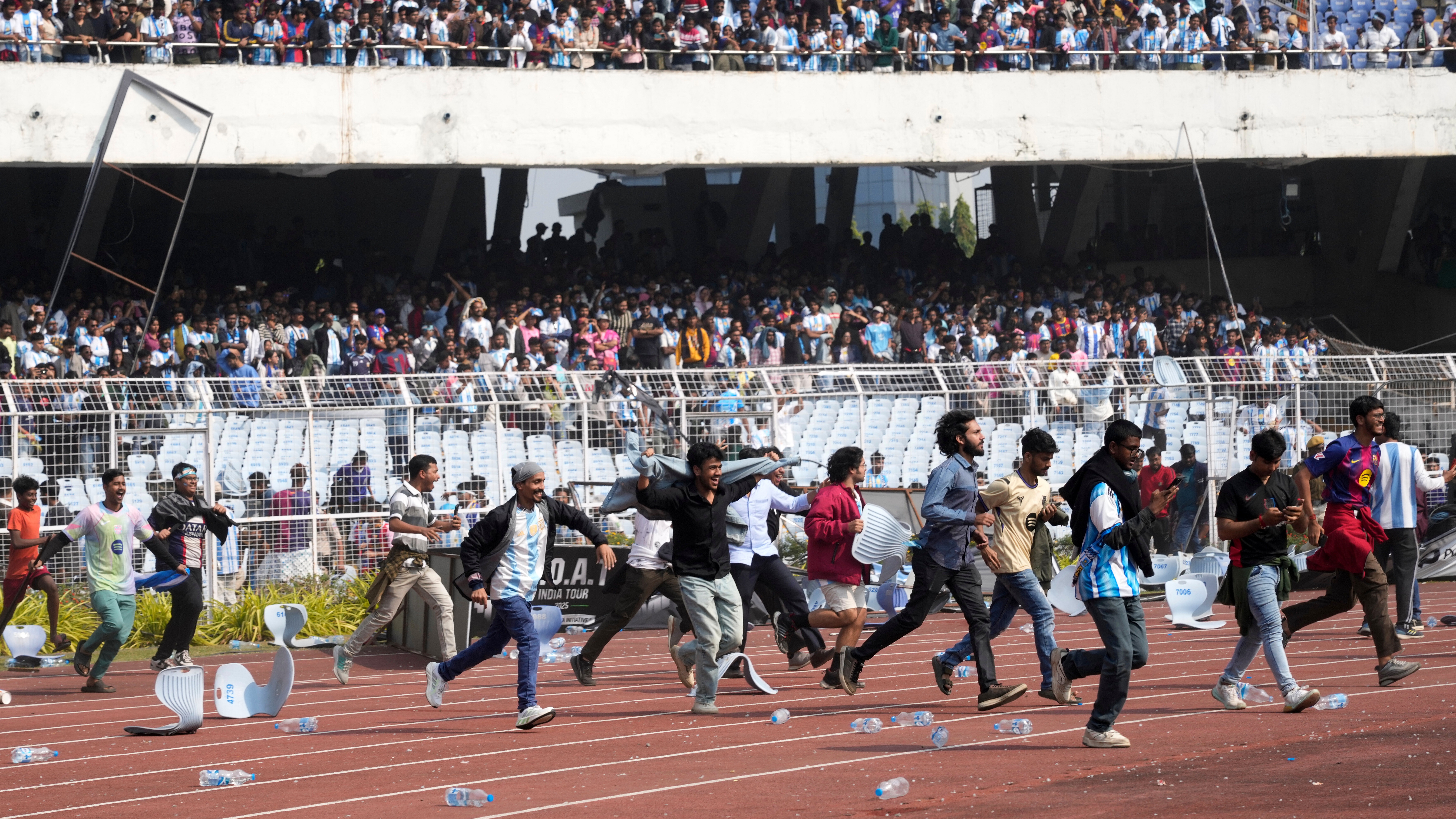Words by Lottie Kilraine and video by Dan Ajose
A fierce debate is raging online over whether people should be banned from filming their workouts in public gyms amid concerns about fellow gym-goers’ right to privacy.
On one side of the argument, gym users insist they need to film themselves working out in order to critique their form, however others take issue with bystanders being filmed in the background without their consent or even being asked to make way for those wanting to film in public.
A growing number of UK chains, including PureGym and The Gym Group, have issued rules over customers filming their workouts, in a bid to “respect the privacy” of their clients.
“Our gym rules state that people should not take photographs or videos that show other members unless permission is sought,” a spokesperson for PureGym, which has more than 370 locations in the UK, told ITV News.
“We also ask people in our gyms to not post remarks or imagery to the internet or social media platforms that may identify another person.”
A spokesperson for The Gym Group – which has 234 locations nationwide – said they have implemented similar rules in order to ensure all members “feel welcome and comfortable in our gyms”, adding any filming “must have consent”.
Meanwhile in Australia, one disgruntled owner has gone a step further and banned the use of tripods and cameras altogether in a bid to stop the flow of content creators into his space.
Tony Doherty, who owns Doherty’s Gyms in Brunswick, received mixed reaction online after he posted a video to Instagram earlier this year announcing that the “scourge of the tripods” is not longer welcome, unless the customer has booked a “media pass”.
“It seems that tripods have become just as popular as self-importance,” he says in the video, which has amassed more than 4,600 likes.
“Some people come here for privacy and don’t want to be in your f***ing movie.”
Mr Doherty goes on to reference women who may be escaping domestic violence and “can’t have their ex know where they are” or other privacy issues where people just “don’t want to be seen”.
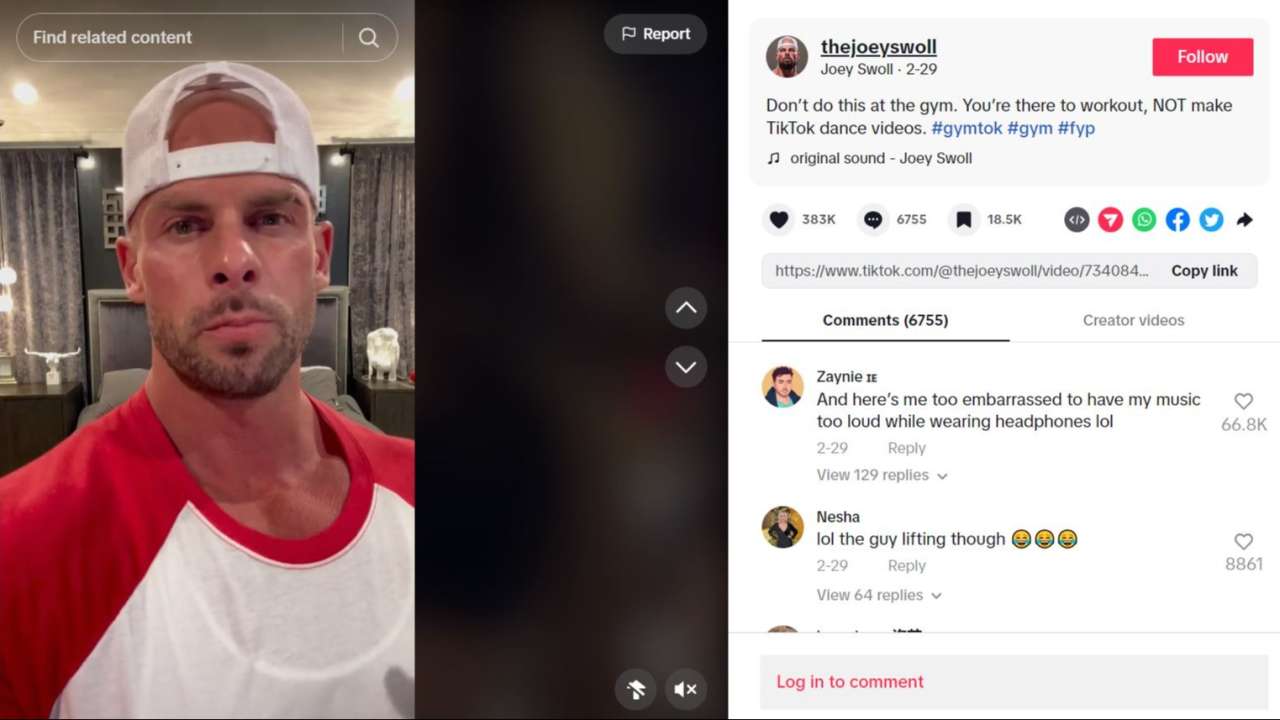
Bodybuilder and fitness influencer Joey Swoll, who has over 7.6 million followers on TikTok and over four million on Instagram, shares regular videos criticising influencers for their behaviour in the gym.
In one clip, that has over 383,000 likes on TikTok, a female influencer has recorded herself doing a dance routine while male gym-goers can be seen working out on machines behind her.
The video then cuts to Swoll who addresses his followers, saying: “Please, please, please don’t do this nonsense at the gym. You are there to work out, not film TikTok dance videos.
“And listen, I’m all for dancing between sets or on the treadmill, I love to see people do it – I do it myself – but you don’t do it standing directly next to somebody who is working out just so you can distract them and get a reaction so you can film it and post it on social media for likes and attention.
“People in the gym are not accessories for your social media content, be more respectful of them … You need to do better, mind your own business.”
In 2016, a former playboy model was spared jail after she posted a video on snapchat of a woman in the changing rooms at her gym and was charged with invading her privacy.
Dani Mathers, who was aged 29 at the time, posted a video online showing a 70-year-old woman completely naked with the caption: “If I can’t unsee this then you can’t either.”
The gym where the incident occurred, LA Fitness, revoked Ms Mathers’ membership after the video went viral online and banned her from all its locations.
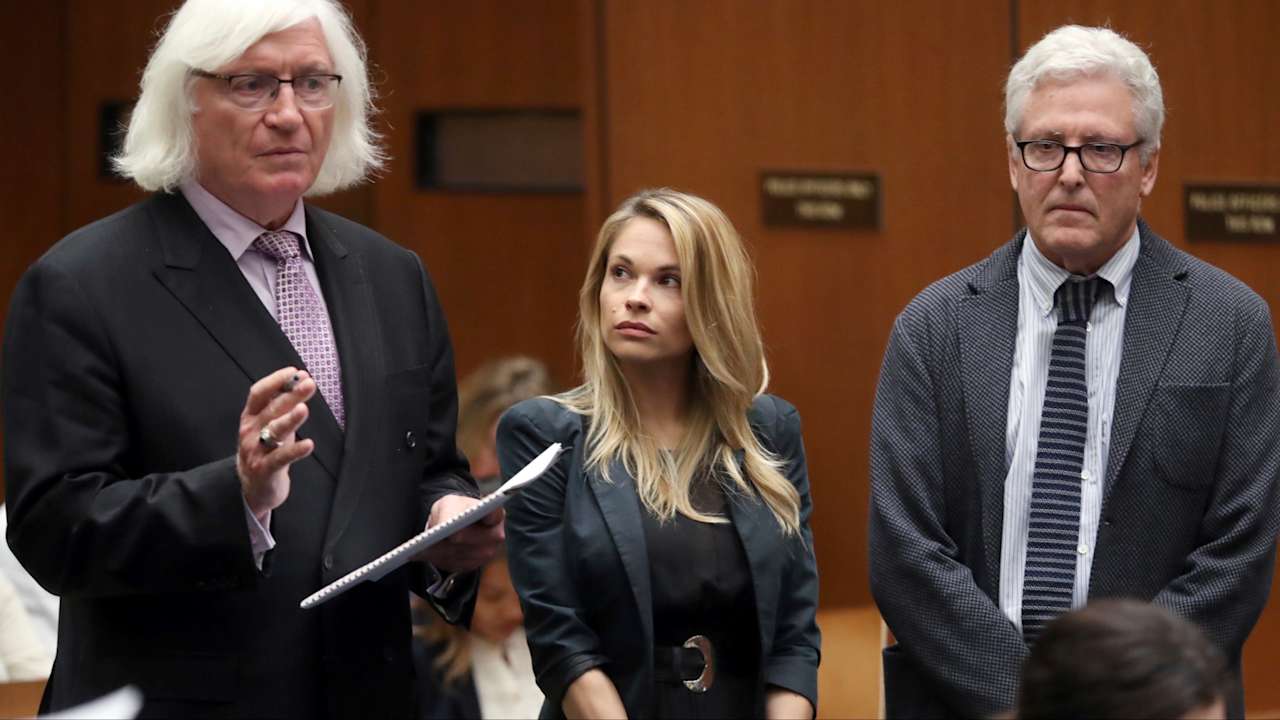
Since then, there have been countless other videos circulating online made by gym-goers “body shaming” people working out, which has in turn sparked the rise of body positivity influencers.
In another post by Swoll, he responds to footage of a woman complaining about bystanders interrupting her video by walking through the frame, writing: “No one has to stop their workout for your video. The gym is for training first, NOT filming.”
The self-described ‘CEO of gym positivity’ then adds: “This entitled nonsense in gyms needs to STOP.”
Swoll’s content appears to be resonating with a large number of people, with the comment section of his video’s commending him for “speaking facts” and thanking him for calling out such behaviour.
However, not everyone agrees that recording content in workout spaces is a problem, especially those who rely on it for their source of income.
Fitness influencer Jordansvain , who has over 18,600 followers on his Instagram account, regularly records videos in the gym and creates content offering advice and workout plans online.
For him, a decision to ban filming at his local gym would be detrimental to both his brand and his income.
“I’d most likely have to relocate to a gym that allows it because I’m going need a facility that allows me to film so I can post and continue to help and motivate people,” he told ITV News.
“A few weeks ago, I bumped into a pal and he told me about how he went to a gym closer to him and they had a ‘no filming policy’. I genuinely couldn’t believe it, I didn’t know they existed.
“I know some commercial gyms are quite iffy about it, but they still allow it as long as you’re considerate.
“There’d be no reason for me to stay in a gym where I can’t film because I wouldn’t be able to make any content or make any sort of profit from doing what I do.”

Jordansvain argues that as long as people communicate and are respectful there shouldn’t be an issue, but added he will always ask permission if there is someone nearby.
“I’ve never actually received any sort of complaints after my filming, I’ve received some questioning looks but nothing verbal,” he said.
“I try and be respectful as well, I wouldn’t film in a high capacity gym or put my tripod in the way of walk ways and equipment if the gym is rammed.”
This stance is echoed by former Royal Marines Commando Rob Blair, who owns the training space Commando Temple located in Deptford, South East London.
Blair agrees that filming can be a nuisance for people trying to train but warns against all out bans, adding gym owners should be wary of turning into the “influencer police”.
“We can’t be the ones making decisions about what people can and can’t do in a gym,” he told ITV News.
“Most people filming themselves at my gym are doing so either to improve their form, or filming their work to show and inspire others.
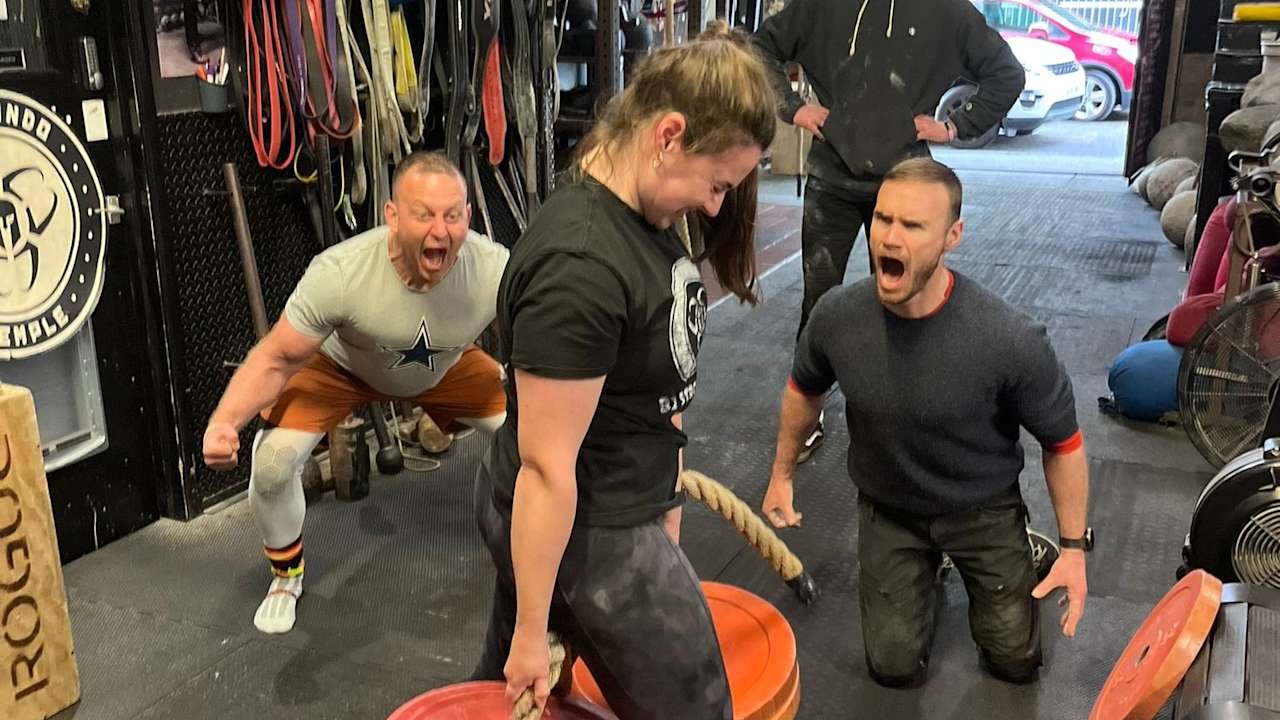
“If an influencer is filming in a public gym, then they should communicate with the people and ask their permission. Most people are okay with it but if they aren’t then they should move their camera.
“And this goes both ways, if someone is jumping into an influencer’s shot and ruining it on purpose then that is also not respectful. People need to be mindful of what they are doing, but some people just don’t know how to do that.”
The popularity of the so-called “gym-fluencer” has been on rise for many years, but the coronavirus pandemic thrust fitness content into the limelight as people turned to social media for workout tips and motivation when gyms were forced to shut as the UK entered into a lockdown.
“That has been the one good thing that has emerged from the adversity of the pandemic,” Blair said.
“However, I do worry because some of the fitness advice being spread by so-called influencers isn’t always good because the they aren’t qualified and are just doing it for their ego. There is no way of policing this.
“Ultimately, there is also an appetite for it online and at the end of the day for many influencers they are providing a service – it is their job.”
Follow STV News on WhatsApp
Scan the QR code on your mobile device for all the latest news from around the country













